Theatre Parallax takes “KATA” to Cardiff
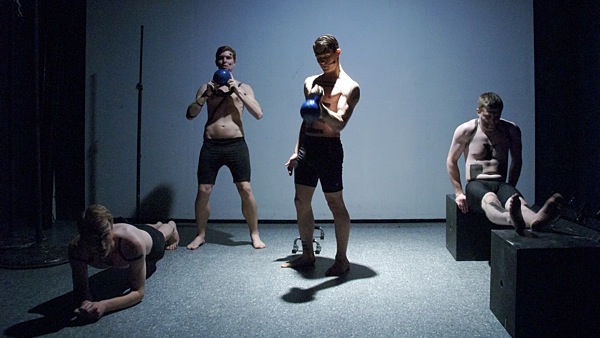 KATA by Theatre Parallax
KATA by Theatre Parallax
Elyssia Sasaki fills us in on KATA, an exciting project that a group of York Devised Theatre students and alumni are taking to the World Stage Design Festival's Scenofest this September.
KATA began in the third-year devised theatre class under the direction of Michael Greyeyes and Moynan King during the Soundscape projects. The original collaborators were Veronika Brylinska, Sarah Hyatt, Emilyann Fullerton, Anthony Di Feo, Thomas McDevitt, Dylan Shumka-White and Wesley Reibeling, who took inspiration from Antonin Artaud’s To Have Done With the Judgement of God, a 1944 radio play. The piece used elements of viewpoints training such as Kinesthetic Response, and exhaustive performance art elements like durational exercise and repetitive tasks to explore masculinity through the trials and tribulations of war. In its inaugural performance in 3050 Devised Theatre, the piece was praised for its informative sound design and its visceral content. Anthony, Thomas and Dylan remain, and Eric Rich, Maite Jacobson, Elyssia Sasaki and Garrett Levine have been brought on board to expand the piece before bringing it to the World Stage Design Festival in Cardiff this fall.
Originally, we submitted an application to the 2013 Rhubarb Festival. Still being students, not being accepted to the festival was a blessing in disguise. Over the course of our fall semester, five of our group members worked with Ian Garrett in Sustainable Theatre, learning more about OISTAT and World Stage Design in general. When the Design as Performance applications came available, the piece, with its explorative nature in the areas of sound and visual stimuli, seemed like a good fit for the festival.
In developing the show, we have been rehearsing two days a week plus doing one workout/training session each week so the boys can keep up with the physical demand of the piece. We have had to expand the piece from 20 to 40 minutes, so more exploration was needed into the ideas of masculinity and war.
We are very lucky to have received a grant from CASA, and we have submitted applications to the Winters College Council and the Office of the Master which we are waiting to hear from. The Faculty of Fine Arts international program coordinator Ina Agastra has been incredibly helpful, having done all in her power to find us funding as York students – but again, a lot of waiting. We have an Indiegogo campaign and we will likely host a performance before we go for our Toronto-based donors.
Support from the Faculty of Fine Arts has been very helpful. Ian Garrett has helped us procure rehearsal and performance space. It is a huge help to have a rehearsal space provided because these are expenses that we can’t afford right now. Every member has agreed to chip in for their own flight, and accommodations for the performers are provided by the Royal Welsh College of Music and Drama. We are very excited to represent not just Theatre at York but Canada onstage in Cardiff.
We leave September 6th and most of us return on the 16th. From the 7th to the 15th, we will be in Cardiff at the festival, taking in shows and workshops and meeting other artists. Four of our number will miss the first two weeks back in the 2013-2014 year; the rest of us are finished at York.
We are in talks about bringing KATA to Winters College and doing a talk about taking a show internationally. At this point in time, our focus is solely on Scenofest, but the future could bring anything. Its emphasis on the design of the body of the performer, coupled with its driving sound and set, make it a good candidate for Scenofest!
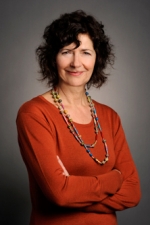
 Ines Buchli
Ines Buchli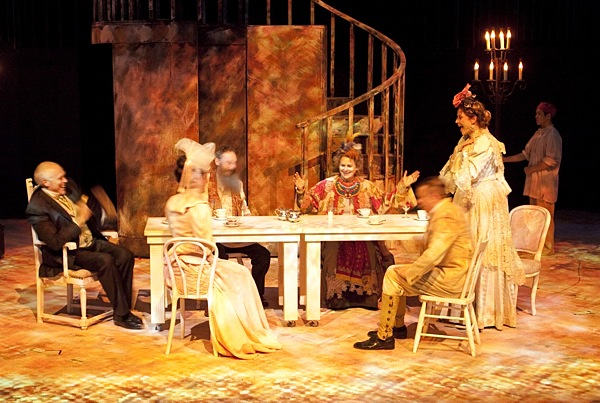 The Company of The Secret Doctrine
The Company of The Secret Doctrine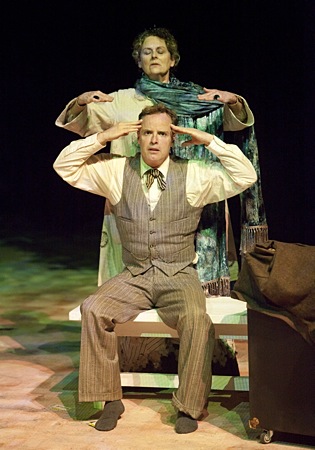 Frank Zotter and Gabrielle Rose in The Secret Garden
Frank Zotter and Gabrielle Rose in The Secret Garden Zita Nyarady in character for Bird Brains City Hearts,
Zita Nyarady in character for Bird Brains City Hearts, 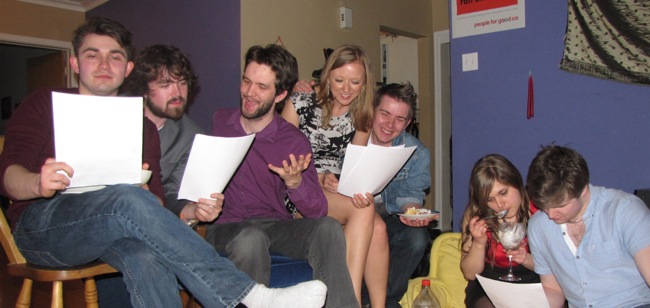 Photo: Judith Rudakoff
Photo: Judith Rudakoff